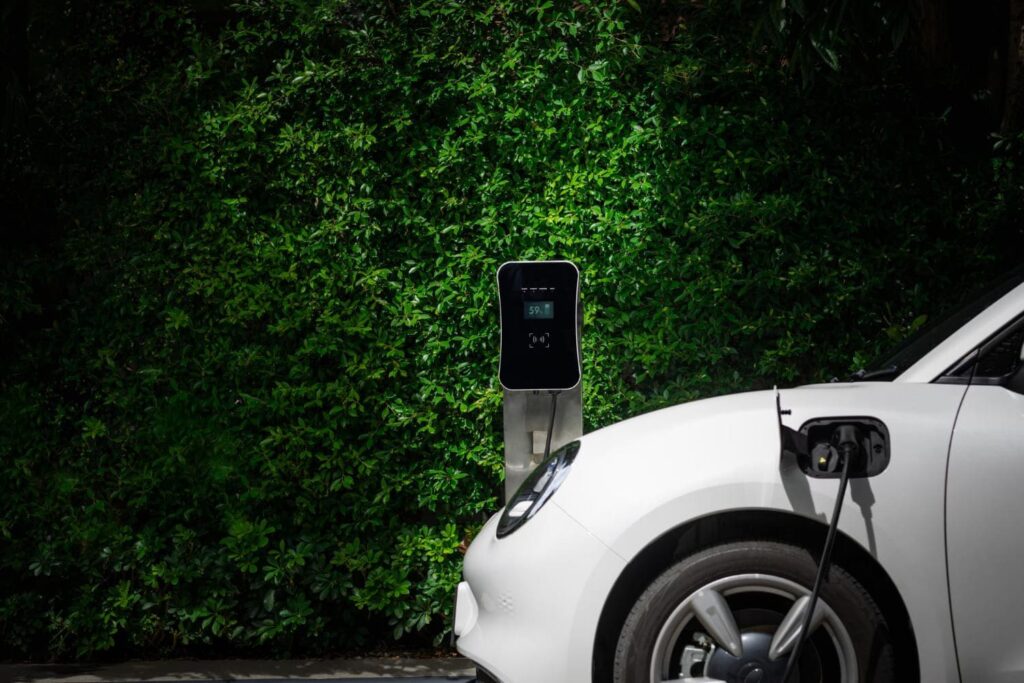In today’s ever-evolving world, electric vehicles (EVs) are revolutionizing our move while championing eco-friendly mobility. As concerns about climate change and environmental sustainability continue to escalate, the adoption of EVs has gained remarkable traction.
These sleek and energy-efficient vehicles not only promise a cleaner future but also offer many benefits beyond the environment.
Ahead, we will delve into the captivating world of EVs, exploring the benefits of EVs and shedding light on why they have become the driving force behind a greener tomorrow.
Benefits of EVs
Electric vehicles bring many benefits, making them an excellent choice for eco-friendly transportation. From reducing emissions to saving money, let’s take a look at the benefits of EVs:
Energy security

Electric vehicles contribute to energy security by reducing reliance on fossil fuels. By shifting away from traditional gasoline-powered vehicles, which heavily rely on imported oil, EVs decrease vulnerability to oil price fluctuations and geopolitical tensions.
Furthermore, EVs can utilize renewable energy sources like solar and wind power for charging, reducing dependence on non-renewable energy.
This transition promotes energy independence and fosters a more sustainable and resilient energy system.
Lower running costs

Although EVs are known to have higher initial price points than average petrol cars, the running costs of electric cars, on average, are significantly lower compared to traditional gasoline-powered vehicles.
In fact, people who charge their EVs at home using an EV tariff can enjoy savings of over 56% per mile compared to traditional petrol or diesel vehicles.
Moreover, compared to hybrid electric vehicles, EVs still win in terms of lower running costs. A comparison between Tesla Model 3 and Volvo XC40 shows that the average fuel cost per 40,000 km for the pure EV is $1,280, while the hybrid one is $7,040.
Also, both cars’ total average running costs are $5,701 for Tesla Model 3 and $11,694 for Volvo XC40.
Additionally, electric cars have fewer moving parts and require less maintenance, further reducing ongoing expenses.
Overall, lower energy costs and reduced maintenance make electric cars more economical on average.
Less noise pollution

The quiet nature of EVs is primarily due to their electric motors, which produce minimal noise during operation.
According to studies, EVs can be up to 50% quieter than conventional vehicles. The absence of engine noise provides a more peaceful driving experience and positively impacts the environment and public health.
Reduced noise pollution from EVs can lead to less noise-related stress, improved quality of life in urban areas, and better overall air quality, as noise pollution is often correlated with increased emissions from traffic congestion.
The convenience of charging at home

Charging EVs at home brings unmatched convenience. With a dedicated charging station or a regular household outlet, EV owners can easily recharge their vehicles overnight, saving time and effort.
Home charging ensures a fully charged vehicle every morning, eliminating range worries. Moreover, it allows owners to take advantage of cost-saving off-peak electricity rates.
Zero Tailpipe Emissions

Electric vehicles are known for their zero tailpipe emissions. Unlike traditional cars, EVs run on electricity stored in their batteries, resulting in no harmful pollutants or greenhouse gas emissions from the tailpipe during operation.
This makes EVs eco-friendly, reducing air pollution and combating climate change. The absence of tailpipe emissions means cleaner and healthier air quality, especially in densely populated areas and urban environments.
As a result, you contribute to cleaner air and a healthier environment by driving an EV.
Better resale value

EVs often have better resale value compared to traditional cars. The growing demand for EVs and lower maintenance costs contribute to their higher resale prices.
However, you must remember that age, physical condition, mileage, and brand play a big role in the value of an EV.
From a buyer’s perspective, it’s a great chance to switch from regular petrol and diesel vehicles to secondhand electric cars as it gives excellent and affordable alternatives with lower costs in the long run.
Frequently Asked Questions
How efficient are electric vehicles?
Electric vehicles are highly efficient than internal combustion engines as they convert more energy from the grid to power at the wheels. This results in reduced energy waste and increased mileage per unit of energy.
Why are electric vehicles the future?
Several reasons why electric vehicles are the future of transportation are that they offer cleaner, more sustainable mobility with improved range and charging infrastructure. They reduce emissions, enhance energy security, and contribute to a greener and more efficient transportation system.
Why are electric cars safer?
For the owners, an electric car is considered safer due to its lower center of gravity, stronger structures, and fewer moving parts than traditional cars. On the other hand, it’s also safer for the environment as it produces zero tailpipe emissions, reducing air pollution and mitigating climate change.
Conclusion
In conclusion, the benefits of EVs make them an appealing option for eco-friendly mobility. From lower carbon emissions to cost savings, EVs provide a sustainable and practical solution for transportation needs.
The quiet, serene driving experience and potential resale value further enhance their appeal. As technology and infrastructure continue to advance, EVs are poised to shape the future of transportation toward a cleaner and greener path.
If you want to create a greener environment while getting many benefits of EVs, switch to electric vehicles now. Contact Kilowatt Cars for the best secondhand electric vehicle for fun and better transport!






